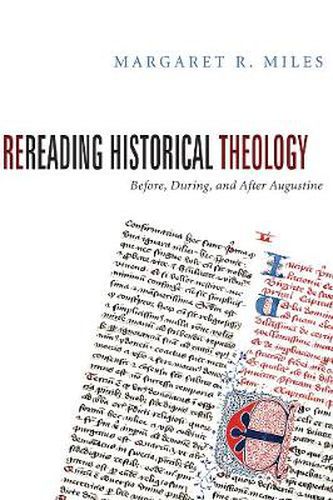Readings Newsletter
Become a Readings Member to make your shopping experience even easier.
Sign in or sign up for free!
You’re not far away from qualifying for FREE standard shipping within Australia
You’ve qualified for FREE standard shipping within Australia
The cart is loading…






This title is printed to order. This book may have been self-published. If so, we cannot guarantee the quality of the content. In the main most books will have gone through the editing process however some may not. We therefore suggest that you be aware of this before ordering this book. If in doubt check either the author or publisher’s details as we are unable to accept any returns unless they are faulty. Please contact us if you have any questions.
Augustine of Hippo is arguably the most influential author in the history of Christian thought and institutions. Yet he has been revered by some reviewers and vilified by others. Contemporary critical approaches to historical authors can illuminate features of Augustine’s thought and activities that are not noticed when reviewers’ attention is either exclusively sympathetic or intransigently critical. Anyone who seeks to present an Augustine who has relevance for the twenty-first century must somehow hold together delight in the beauty of his prose and the profundity of his thought with dismay over some of the intentions and effects of his teachings. The essays in this book endeavor to read Augustine simultaneously critically and appreciatively. Miles places his thought in the context of his classical heritage and notices how pervasive in later Christian authors are the themes that informed Augustine’s thought. Understanding his writings as a passionate effort to describe a metaphysical universe that accounts for the endlessly fascinating mystery of embodied life makes many of Augustine’s proposals accessible, useful, and delightful in the context of contemporary quandaries and issues. His conclusions are less important than his method: In Augustine, knowledge and life mutually illuminate, energize, and critique each other, exemplifying the practice of a fully human life. Exploring some of his most persistent themes, these essays seek to show how Augustine’s theology works.
$9.00 standard shipping within Australia
FREE standard shipping within Australia for orders over $100.00
Express & International shipping calculated at checkout
This title is printed to order. This book may have been self-published. If so, we cannot guarantee the quality of the content. In the main most books will have gone through the editing process however some may not. We therefore suggest that you be aware of this before ordering this book. If in doubt check either the author or publisher’s details as we are unable to accept any returns unless they are faulty. Please contact us if you have any questions.
Augustine of Hippo is arguably the most influential author in the history of Christian thought and institutions. Yet he has been revered by some reviewers and vilified by others. Contemporary critical approaches to historical authors can illuminate features of Augustine’s thought and activities that are not noticed when reviewers’ attention is either exclusively sympathetic or intransigently critical. Anyone who seeks to present an Augustine who has relevance for the twenty-first century must somehow hold together delight in the beauty of his prose and the profundity of his thought with dismay over some of the intentions and effects of his teachings. The essays in this book endeavor to read Augustine simultaneously critically and appreciatively. Miles places his thought in the context of his classical heritage and notices how pervasive in later Christian authors are the themes that informed Augustine’s thought. Understanding his writings as a passionate effort to describe a metaphysical universe that accounts for the endlessly fascinating mystery of embodied life makes many of Augustine’s proposals accessible, useful, and delightful in the context of contemporary quandaries and issues. His conclusions are less important than his method: In Augustine, knowledge and life mutually illuminate, energize, and critique each other, exemplifying the practice of a fully human life. Exploring some of his most persistent themes, these essays seek to show how Augustine’s theology works.